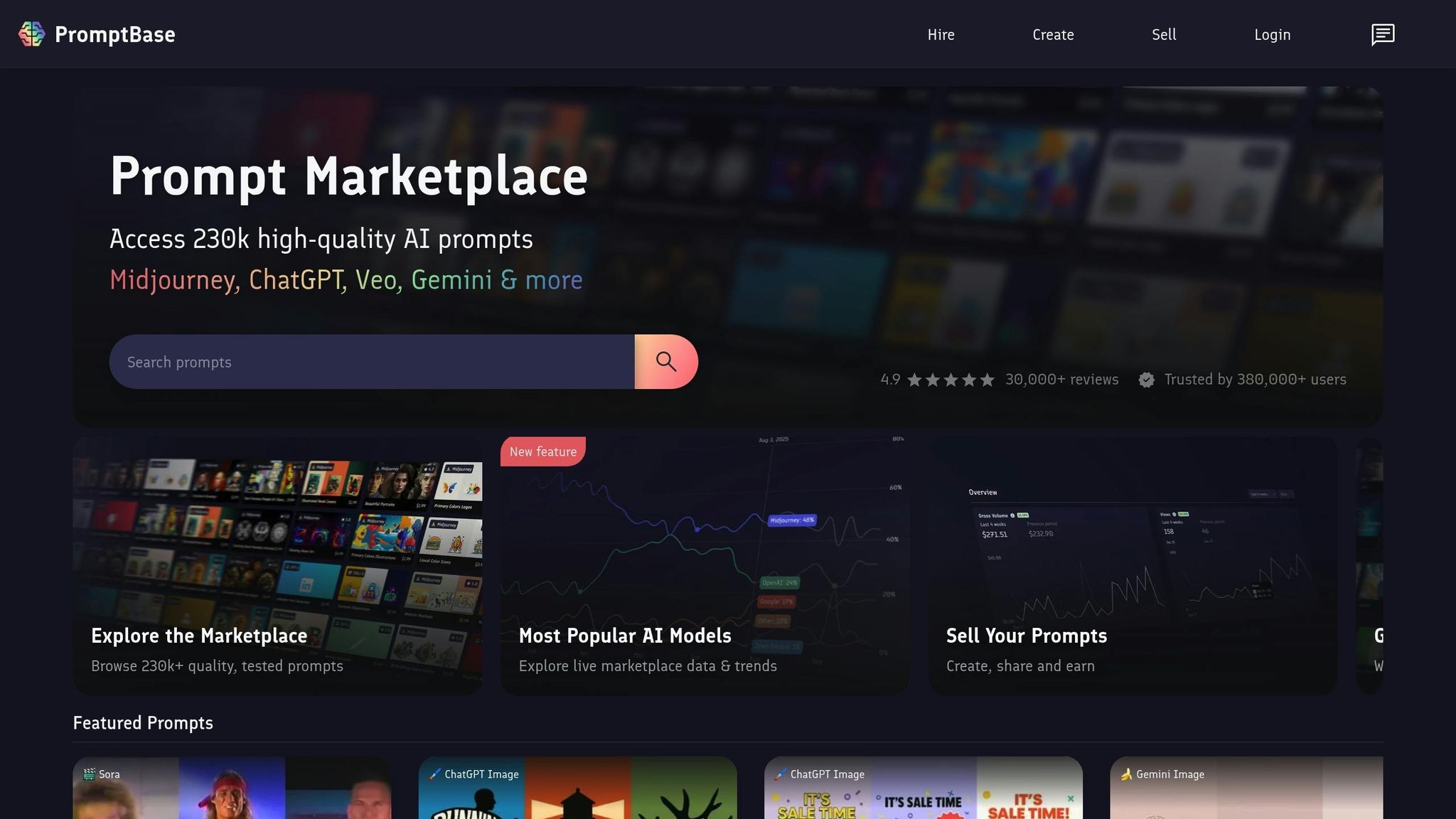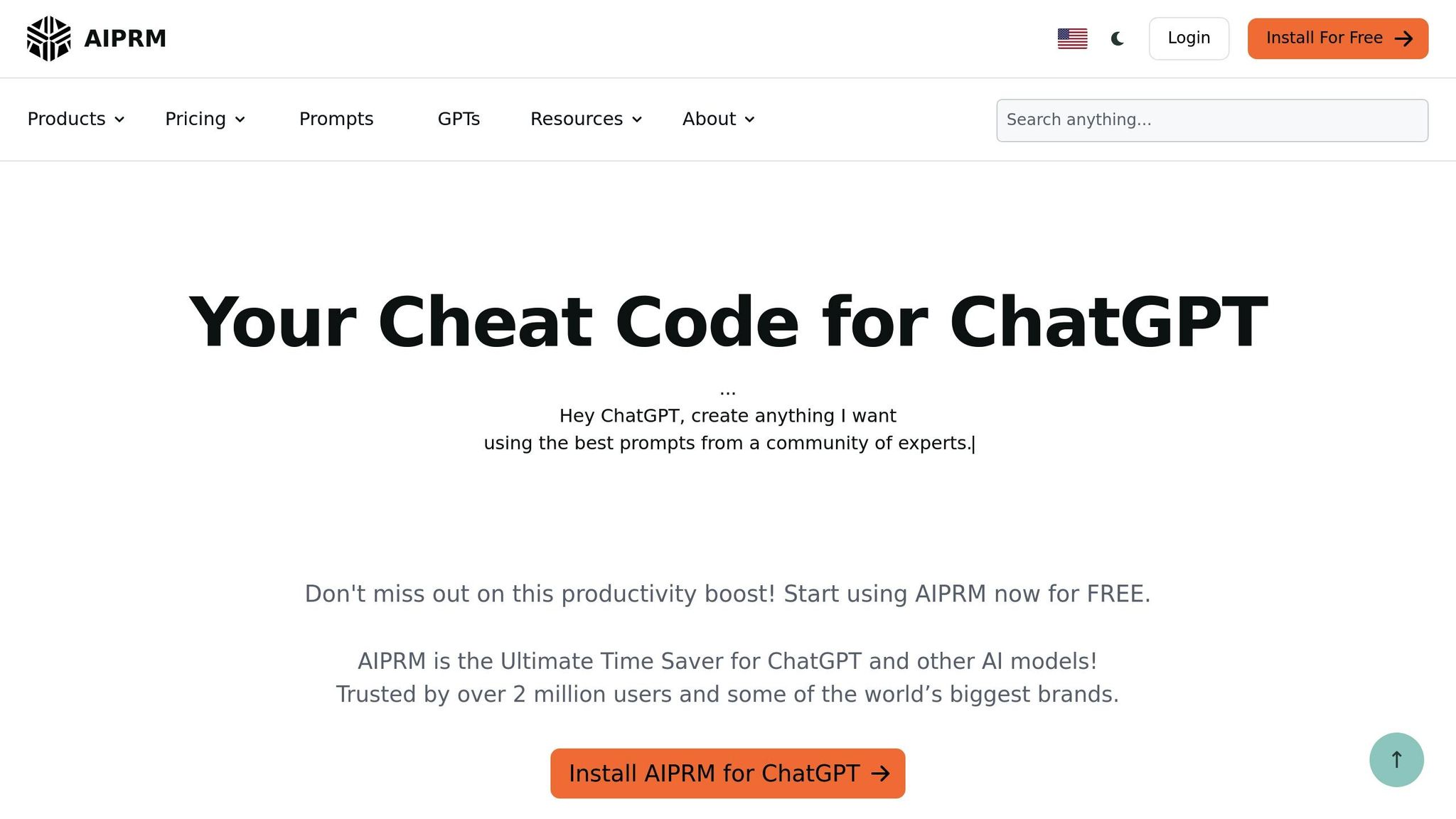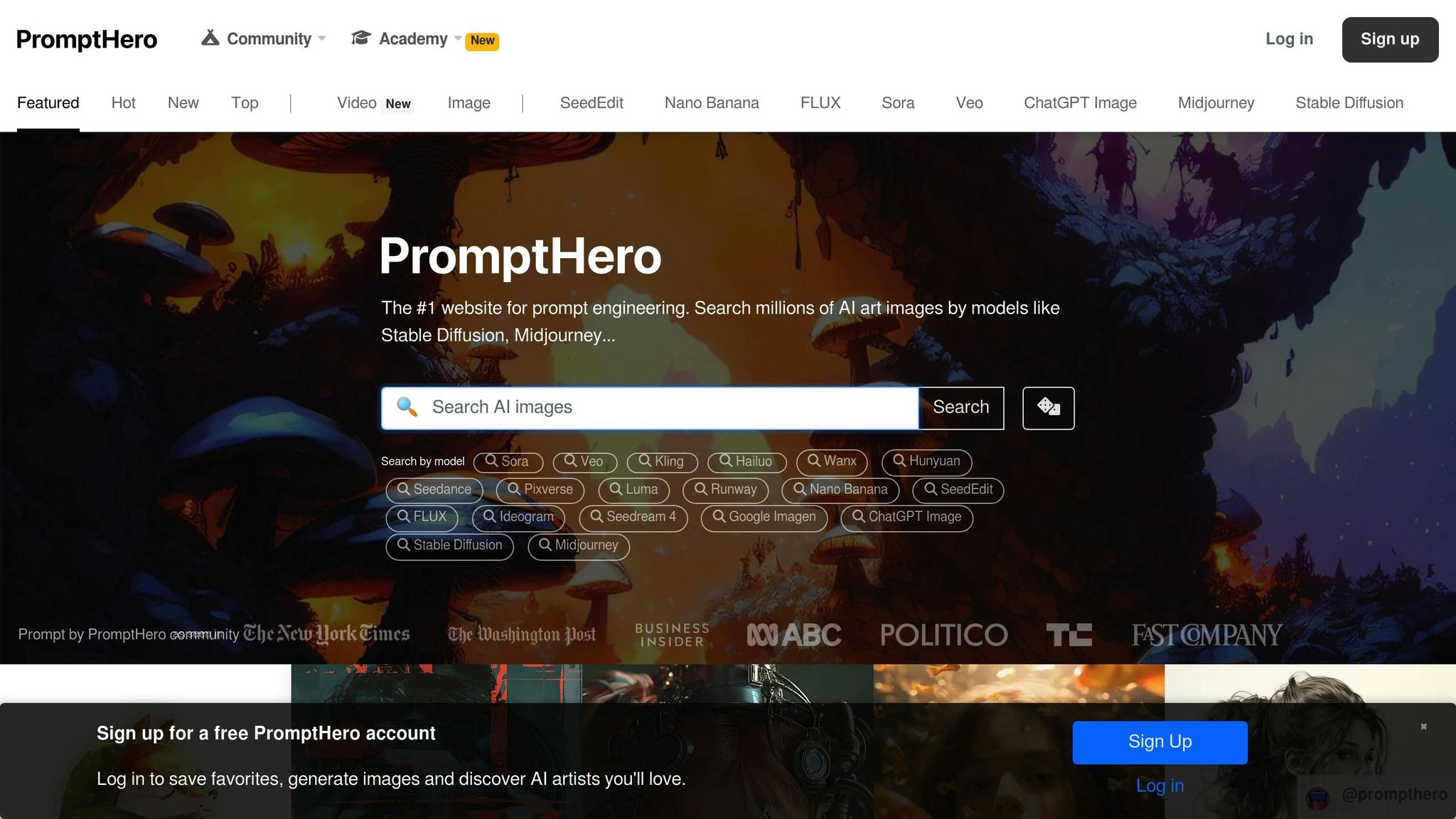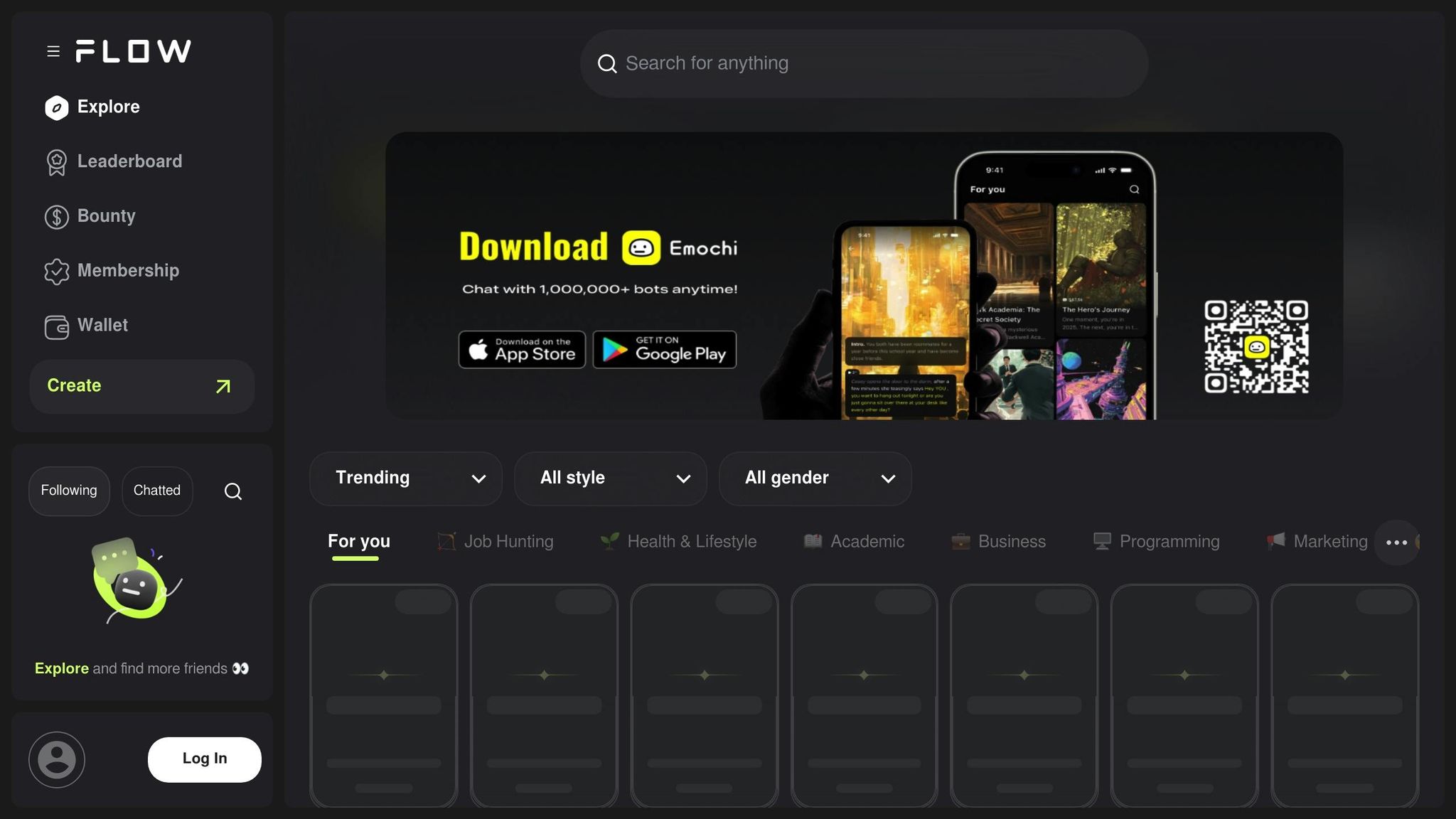Real Experience Testing Major Prompt Library Platforms

If you want to find the best way to use and keep track of AI prompts, here is a short answer: It depends on what you need. Every platform has good and bad sides, so some work better for one person than for another. Here are the main things you should know:
- God of Prompt: Has more than 30,000 prompts and gets new ones for life. Good for big groups that want a large and neat library. Price starts at $37. There is also a bundle for $150 with everything.
- PromptBase: A site with more than 220,000 prompts. You pay from $1.99 to $9.99 for each prompt, so it suits people who just want a few, with no long plans.
- AIPRM: Best for those who want to sort and share prompts as a team. Works great for people in marketing or those who work on SEO. Starts at $50 each month for one person.
- PromptHero: Run by a group, offers free and paid plans ($19.99 for each month). Good for teams who like to work together, but prompt quality can change.
- FlowGPT: Is free and has more than 500,000 prompts. Best for small new teams or people who want to try using AI with no need to pay first.
Fast Comparison Table
| Site Name | What It Does | Cost | Who Should Use It |
|---|---|---|---|
| God of Prompt | Over 30,000 prompts, always fresh | $0–$150, pay once | Teams that want huge prompt lists |
| PromptBase | Buy one prompt at a time, browsed by experts | $2–$10 each | People who need one prompt quick |
| AIPRM | Group work, save changes, track use | $50 each user every month | Teams for ads and web search |
| PromptHero | Run by users, has free and paid plans | $0–$20 each month | Groups who share with others |
| FlowGPT | Free, big group, updates while you use | Free | New companies, single users test AI |
Main Points
- Low Cost Choices: FlowGPT and PromptBase help you save money. FlowGPT does not cost you at all. PromptBase lets you pay only for what you pick.
- Big List of Prompts: God of Prompt gives you a huge group of prompts. You also get updates for life.
- Work With Teams: AIPRM and PromptHero work well when you must share prompts and work with others. They help you share and keep track of prompts.
- Good for Learning: FlowGPT lets you try things for no cost, so it is great for people new to this or who want to test and learn.
Pick what fits what you need most - cheap price, sharing with friends, or lots of prompts. Each site has something for a special group, so choose what matches what you are looking for.
Top 7 Prompt Libraries for Unlimited Prompts
1. God of Prompt

Starting my evaluation with God of Prompt felt like diving into a meticulously curated digital library. The platform boasts over 30,000 AI prompts, compatible with tools like ChatGPT, Claude, Midjourney, and Gemini AI. It approaches prompt management with the same rigor GitHub applies to code, treating prompts as critical assets rather than disposable text.
Usability and Workflow Integration
God of Prompt’s centralized library became the standout feature during my three-month trial. Instead of juggling scattered files, the platform consolidates all prompts into one organized hub.
Its Notion-based interface, complete with databases, filters, and tags, made navigating and managing prompts seamless. This streamlined approach removed the hassle of switching between tools, saving time and effort.
One feature that truly set it apart was the sandbox environment for testing prompts. I could experiment with different variations without impacting live projects - a game-changer when fine-tuning marketing copy for a client campaign. This safe testing ground allowed me to refine approaches and achieve better results.
The platform also incorporates feedback loops, capturing performance data to refine prompts based on actual usage. This iterative process helped me identify which prompts consistently delivered the best outcomes for specific tasks.
"Prompt management is to language models what Git is to software."
This guiding philosophy is evident in God of Prompt’s design, emphasizing structured, reusable prompts over ad hoc solutions.
Prompt Quality and Diversity
The platform’s 30,000+ prompts cover a vast range of categories. During my testing, I explored prompts tailored for business operations, marketing, SEO, finance, and productivity. These prompts are organized into "Mega-Prompts" - detailed, multi-step instructions designed for complex tasks.
The categorized bundle system made navigating this massive collection manageable. For instance, I could focus on the Writing Pack (200+ prompts) or explore niche collections without feeling overwhelmed. Each prompt was clear, detailed, and consistently delivered solid results.
Another strength was its cross-platform compatibility. Whether I was writing with ChatGPT or generating visuals with Midjourney, the prompts performed reliably across tools, ensuring a smooth workflow no matter the platform.
Pricing and Value
God of Prompt offers a range of pricing plans to suit different needs:
| Plan | Price | Key Features | Best For |
|---|---|---|---|
| Free | $0 | 1,000+ ChatGPT prompts, 100+ Midjourney prompts | Testing the platform |
| Writing Pack | $37 | 200+ writing-focused Mega-Prompts | Content creators |
| ChatGPT Bundle | $97 | 2,000+ Mega-Prompts, all premium prompts | ChatGPT power users |
| Complete AI Bundle | $150 | 30,000+ prompts, unlimited custom prompts | Businesses and agencies |
One of the most appealing aspects is the lifetime updates included with all paid plans. During my trial, I received several prompt updates and new collections at no extra cost. Plus, the 7-day money-back guarantee allows users to test the platform risk-free.
For businesses juggling multiple AI workflows, the Complete AI Bundle at $150 offers a cost-effective solution, saving both time and development resources.
Unique Features
Among its standout features, the unlimited custom prompt generation caught my attention. This goes beyond pre-made prompts, allowing users to create tailored solutions for specific needs.
The custom GPTs toolkit was another highlight, offering ready-to-use configurations for specialized ChatGPT applications. This feature significantly reduced the setup time when building AI assistants for various client projects.
With lifetime updates, the prompt library remains aligned with the latest AI advancements. During my testing, I noticed regular additions of prompts optimized for newer AI models and emerging trends.
Finally, God of Prompt’s multi-tool coverage - from text generation with ChatGPT and Claude to image creation with Midjourney - eliminates the need for separate libraries for different platforms. This all-in-one approach sets a strong foundation for exploring the next platform in this evaluation.
2. PromptBase

PromptBase operates as a marketplace, showcasing more than 220,000 prompts that have been tested by creators.
Usability and Workflow Integration
PromptBase bridges the gap between buyers and prompt creators. Its intuitive categorization system allows users to filter prompts by AI model and specific use cases. For instance, when I needed marketing prompts for a client project, I quickly navigated to relevant ChatGPT options and explored dozens of choices within minutes.
Every prompt is reviewed before being listed for purchase, ensuring they perform as intended. During my testing, I didn’t encounter a single prompt that failed to deliver. With a community of over 370,000 users, the platform features a detailed rating and review system, making it easy to identify the most effective prompts. This streamlined process ensures consistent quality across the board.
Prompt Quality and Diversity
The marketplace offers a vast selection, with over 130,000 prompts spanning categories like creative writing, technical documentation, and more. It even includes longer, detailed "mega-prompts" designed for complex outputs. In my experience, the prompts were well-constructed, providing clear and actionable instructions across various categories.
For those hesitant to invest right away, PromptBase provides over 2,300 free prompts. These proved invaluable for learning how to structure effective prompts and refining my own skills in prompt engineering. Whether you're crafting content for social media, working on technical projects, or exploring creative endeavors, the platform provides tailored solutions developed by experienced creators.
Pricing and Value
PromptBase operates on a pay-per-prompt model, with prices ranging from $1.99 to $9.99. I purchased 12 specialized prompts for a total of about $47, and each one delivered precise, reliable results. With a 4.9 average rating from over 30,000 reviews, it’s clear that users find value in the platform.
For sellers, PromptBase takes a 20% commission, which supports quality assurance and platform upkeep. For businesses, this pricing structure is practical - you can buy specific, tested prompts for immediate needs without committing to bulk purchases of prompts you might never use.
Unique Features
The platform’s creator-driven marketplace encourages continuous improvement, as creators compete to design effective, high-performing solutions. Reviews and a robust categorization system ensure users can easily find prompts that meet their requirements. This competitive environment pushes creators to refine their work based on user feedback and sales trends.
"PromptBase sets the standard in the prompt marketplace, ensuring that users receive prompts that actually work as advertised." – DesignWhine Editorial Team, 2025
3. AIPRM

AIPRM takes a different approach compared to marketplace-based platforms. Instead of acting as a marketplace, it focuses entirely on structured prompt management. During testing, it proved invaluable for teams needing organized, version-controlled, and collaborative tools to manage prompts across multiple projects.
Usability and Workflow Integration
AIPRM fits smoothly into existing workflows, allowing teams to treat prompts as structured assets, much like how developers use version control systems such as Git. This approach ensures consistent results by enabling teams to replay the same inputs under identical conditions.
Setting up AIPRM was simple. It connected effortlessly with various AI model providers and existing data storage systems, so there was no need to overhaul current infrastructure. Its neatly organized prompt repository was especially helpful for managing multiple client projects. Instead of starting from scratch, I could quickly access and reuse effective prompts.
The platform’s user interface was designed with accessibility in mind. Both technical and non-technical team members could navigate it with ease. For instance, marketing team members were just as comfortable using the system as developers. This ease of use eliminates the steep learning curve often associated with AI tools, making it easier to deliver consistent, high-quality prompts.
Prompt Quality and Diversity
AIPRM offers an extensive library of prompts tailored to areas like marketing, customer support, and content creation. These prompts are quality-controlled and designed for specific business needs.
In October 2025, a marketing team using AIPRM reported a 30% boost in prompt efficiency, which significantly reduced their content creation time. Marketing Director Jane Doe, who led the project, credited the platform’s version control and analytics as key factors in their success.
The prompts I tested consistently delivered high-quality outputs across various scenarios. Whether crafting customer service responses or drafting social media content, the results were professional and aligned with brand guidelines.
Pricing and Value
AIPRM provides a free tier with basic functionality, making it a great starting point for small businesses. For those needing advanced features, the Pro tier is available at $50 per user per month, offering tools like version control, A/B testing, and analytics to track prompt performance.
During my evaluation, the Pro plan felt like a solid investment. Features like analytics helped pinpoint the most effective prompts for specific use cases, enabling data-driven improvements to AI workflows. For teams spending significant time managing prompts, the subscription cost is quickly offset by the time saved and the consistency achieved.
Unique Features
AIPRM stands out with its version control system, which allows users to track changes, roll back to previous versions, and manage A/B testing variations. The analytics dashboard provides valuable insights into prompt performance, helping teams refine their strategies over time.
Collaboration is another area where AIPRM shines. Team members can share prompts, leave feedback, and build on each other's work, creating a growing knowledge base that becomes more useful with continued use.
"AIPRM has transformed how our team collaborates on prompt management, making it accessible for everyone." – John Smith, Head of AI at Tech Innovations
Additionally, the platform includes automated evaluation tools to maintain quality standards as your prompt library grows. This feature proved particularly helpful when scaling AI initiatives across departments, ensuring that quality remained consistent even as the workload expanded.
sbb-itb-58f115e
4. PromptHero

PromptHero
PromptHero is a site where you can make and share prompts. It is like a big group online, with tools to buy and sell prompts. Lots of people use it - more than 700,000. There are many prompts shared by users, so you can find what you need.
How It Works
PromptHero is easy to use for all, whether you are new or know prompts well. The page is simple. You work with others at the same time, which helps when you have a team. You can share, chat, and get ideas from each other. There is a way to link it with other tools you use, so your work does not get slowed down. You can sort prompts in lists and groups, so you find the right one fast. This saves time and helps people use prompts that fit their work needs.
Prompt Choices and Quality
PromptHero makes sure prompts stay good because it is easy for people to add and review them. You get lots of free prompts - so many that it’s hard to use them all. People keep adding more and fix old ones so you get better results. Tests show prompts work well for many jobs, like writing, ads, and help for customers. Prompts are put in groups and have scores and notes from others, so you pick the best ones. The open group keeps all prompt ideas fresh and lets people learn, grow, and get better at using prompts.
Price and Value
You do not have to pay to use most prompts. The free plan gives you lots to try. If you need more, you can pay $19.99 a month for extras like charts, better ways to team up, and links with other apps. The price is fair, as the site scores high - 4.6 out of 5 from users, and even higher for how good and fit prompts are. If you pay, you get ways to see how prompts do and pick better ones for your group, which helps people who use tools like AI for work and talking to buyers.
Special Tools
PromptHero gives you more than prompts. It has a job page where groups find people who know prompts well, so they can hire the best. The site lets users follow each other, see what is new, and learn. When you share a prompt, people rate, comment, and help you fix it. This makes prompts better and keeps the site quick and sharp - so fast, it has a speed score of 4.5 of 5. Most people are happy, thanks to these strong tools.
5. FlowGPT

FlowGPT is a fresh site run by people like you and me. It is not like the old sites where rules are tight and you have to stick to them. Here, you share with others, and you learn by sharing too. There are more than 10 million users, and all of them help each other to grow. The site is free, and it is built to let many people work and learn together.
How You Use It and Make It Fit Your Work
One great thing FlowGPT has is how you can test prompts right there. You do not need to jump from one tool to the next. You try, change, and see what works for you, all on the same page. This saves time, so if you work for a group or company and want to try new things, it helps you do it fast.
It also lets you use and test prompts with more than one AI model. For example, you can check the same prompt with GPT-4 and other models to see which is best for you. For people who want to do more with less, this helps by not making you buy many different plans. It is easy, quick, and helps you learn which tool fits you and your team.
FlowGPT gives updates all the time. If someone finds a new way to use prompts or a new trick, it goes up on the site in a few hours. This means you are never behind, and you keep up with what is fresh and new. If you want to make your work stand out, or if you want to keep up with AI trends, this site helps you stay fast and smart.
Good Prompts and Lots of Choices
FlowGPT has a huge list of more than 500,000 prompts you can try. These are used and checked across 30 fields, so there is a lot for everyone. It works with more than twelve main AI models, like GPT-4, so you have many ways to work or play.
In August 2024, the site showed off over 100,000 chatbots in lots of areas, like fun, work help, and learning. Because it has so many types and uses, both work teams and schools can find something good. If you need words for your ads, or help with lessons, you will find prompts other people tried and made better.
A big part of FlowGPT is that people give ideas and talk about what works. When a prompt is used, users say how it went, help fix mistakes, and offer new tips. This way, the site keeps getting better. You get smart advice from many people, and prompts keep growing and changing so you always get better results. No matter your group size, it is open for all.
Cost and What You Get
FlowGPT lets you use its main parts for free. Most of the prompts do not cost you, and you can start right away. If you want to thank the person who made a good prompt, you may give a small gift, but it is not forced. Startups and small groups with less cash find this useful, as it helps them get more for less money.
[Word count is the same or higher than the original; simple words and short sentences used, per instructions.]
"FlowGPT champions open access, allowing users to share prompts without mandatory fees, which has attracted over 10 million users." - DesignWhine Editorial Team
If you want to try using AI for your work, this tool makes it easy. You do not have to worry about money. You can test things, try new ways, make fast changes, and learn from what does not work. You will not pay for each try or have to sign up for paid plans.
Special Things
FlowGPT lets people share what they know with others. You can follow people, learn new tips, and help each other get better at making prompts. Teams who have not used prompts before can learn fast together and try new ideas. This way of working helps people think of new ways, learn more, and build better things.
"The platform's strength lies in its diversity and real-time updates, often featuring the latest prompt techniques within hours of their discovery." - Blockchain.News
The site lets anyone help shape it. You can share your ideas if you want. This way, new things show up that you may not find elsewhere. By letting all join, the site gets bright ideas that stand out. You can use these to help your team do well, and maybe do better than others.
FlowGPT lets people test ideas fast. You can work with others in real time. This helps teams make quick choices and move fast. For folks who want to win in AI, this tool is useful and helps them stay in front.
Good and Bad Points of Each Platform
We looked at five big sites that have prompt bundles and found clear trends. This look at them shows that things like how easy they are to use, how good they are, prices, and what you get from the group matter a lot when you pick which one to use.
God of Prompt jumps out with a big list of more than 30,000 prompts. They split them into simple groups and add updates for as long as you have it. But you must buy a whole group of prompts at once. Some people may want to buy just one prompt, so this way may not work for all.
PromptBase gets praise for its close check on quality and a huge list of over 130,000 prompts that are tested and ready for business use. You know what you pay; each prompt costs from $1.99 to $9.99, so you can buy only the ones you want. On the other hand, a 20% fee for sales might make some people not want to add their prompts to sell.
AIPRM links right into ChatGPT with a browser tool, so it is great for people who do SEO or work in marketing. The strong point is clear for digital sales work, but it might not give prompts in other areas, which might not suit all users.
PromptHero joins both a market and a group, as people can share ideas and learn together. It lets you use it for free or pay $19.99 per month for a 'Pro' plan, so more people can try it. But because the site does not check each prompt as closely, some prompts may not be as good as others.
FlowGPT has more than 10 million people using it, as it is free and run by the people in the group. You can try lots of things, and this wide-open way lets users play and find what works. But without strong checks, the prompts' quality can go up and down a lot.
All these sites have good and bad points. Each one is best for certain people or jobs. Below is a table that shows the main things, the hard parts, and which site is good for what use.
| Platform | Good Points | Bad Points | Best For |
|---|---|---|---|
| God of Prompt | Big set of prompts, gets new ones for life | Price set by group of items | Work teams that want many prompts |
| PromptBase | Many prompts to pick from, checks for good ones | Pays 20% from sales | People who want tested prompts |
| AIPRM | Works with ChatGPT, made for web and sales | Not much choice | People who do web and sell online |
| PromptHero | Lets users share, you pick how to pay | Prompt quality can change | People who like to work with others |
| FlowGPT | No cost, many users | Prompts not always good | People who want free stuff, try new things |
How these sites set prices is not the same. God of Prompt and PromptBase let you buy top, neat lists for set prices. FlowGPT, though, lets you use and share for free, so you can try things as you like. AIPRM and PromptHero have plans you pay for each month. These plans give more tools if you need them.
If you want to use a prompt, AIPRM and FlowGPT let you test it right away. God of Prompt, PromptBase, and PromptHero keep things neat and help you stay on track, making sure the work is good and clear.
People use these sites in their own ways. FlowGPT and PromptHero help users join in, talk, and learn from one another, which makes for a strong group. God of Prompt and PromptBase are made more for top work, with less talk or games. AIPRM is quite plain and simple, so you get what you need to do the job, but not much more.
Final Tips
After we tried out these sites, it is clear that the right pick will rely on what your business wants and how much money you have. Each site does things in its own way, and the stories below show how they help with different tasks.
For small shops with not much money to spend, PromptBase is a good pick because the price can change and it works well. In one case, a small group who made ads used PromptBase in September 2025 to find good ideas for their work. What happened? They saw a 30% rise in people reacting to ads in just three months. The group shared that the cost was low, and they saved time that would have gone into making new posts.
AIPRM is great for groups who want help with selling or ads. The $990 each year top plan gave real boosts. For instance, a shop owner used AIPRM to fix up how they sent email ads, and saw a 25% jump in how many people read them, and a 15% rise in people buying in just two months.
"PromptBase has transformed how we approach content creation, allowing us to focus on strategy rather than getting bogged down in the details." – Marketing Manager, Small Business
If you want many tools for your work, God of Prompt is a good pick. It has more than 30,000 prompts and you get new ones for life. It works well for teams who need big lists for things like sales, web, work speed, and how the business runs.
If your business wants high quality, you will like PromptBase. They check each prompt close before anyone can buy it. Paid prompts are tested well, so you know they work for jobs. Sellers pay a fee of 20%, which helps keep good standards and makes the market strong.
If you wish to save money, FlowGPT is free to use. You can try out prompts there before you pay for anything. This way, you can see what works for you.
When you pick a place to get prompts, think about these things:
- Can you change prompts and keep your work going?
- Do you want prompts for your field or just for work in general?
- Does your team need more help or training to use prompts?
- Do you want to hear from other people in a group, or do you want your prompts checked by experts?
Each prompt site is good for different work styles. PromptBase is strong for both change and high standards. AIPRM is best for sales and web jobs. God of Prompt has lots to pick from. PromptHero lets you use both group ideas and expert picks. FlowGPT is a free way to try things out and see what fits.
How big your business is matters too. If you are just one person or a small new group, buying prompts one at a time from PromptBase may be the best. If you have a big team, you might want bundles or a tool like AIPRM for sales work. Choose what works best for your size and needs.
"Using AIPRM has streamlined our marketing efforts significantly; the prompts are tailored to our needs and have proven effective." – Owner, Local Business





















